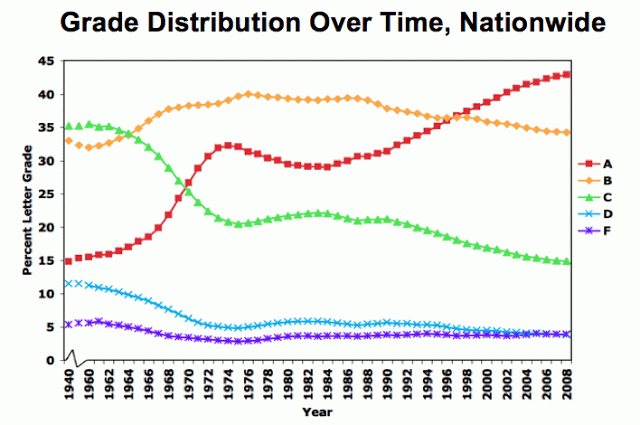There are lots of logical fallacies out there–errors in reasoning–and a quick perusal of almost any online discussion forum will reveal many of them. Here’s a quick list of some of the most frequently encountered fallacies, along with examples. And here’s another application of how this occurs in online discussions:
Monthly Archives: February 2014
Online Deliberation Site
First, update your sites.psu.edu profile so that your name shows up, and so that there’s a picture of you. (If you’re strongly opposed to having your picture show up, you can substitute another image.) Log in to sites.psu.edu and click on your name (or userID) in the upper right corner. Go to “edit my profile” and ensure that the name field has your first and last name (in English). Click on “save changes.” Then, click on “change avatar” to choose a file and upload an image. Be sure to save changes here too.
Here’s the deliberation site: http://sites.psu.edu/highereducationdeliberation/
When commenting, try to follow standard conventions when responding. You can use some basic HTML tags to add emphasis. When responding directly to a single comment–and especially to more than one in a single post–you might want to use the @ convention to indicate the intended recipient of the comment:
@Robin Kramer: I am providing and insightful comment to your idea, and not merely saying “I agree.”
Teaching Philosophy Examples
Several people asked to be able to review the teaching philosophies we explored in class. I’m posting the document we reviewed; note that we considered the first and third philosophies provided, but you might also gain some insight by perusing the other two.
If you were absent: We considered each paragraph in the statements to determine what function it performed in a personal philosophy such as this–its purpose. We also considered what it looks like to both expand and particularize beyond mere best practices (the things that every teacher should do) to something genuinely personal. While your moderating philosophy will cover a different function from teaching, the tasks bear enough similarity that we could draw a lot of parallels in terms of expression and amplification.
Deliberation Rubrics
Here are the three rubrics for the three deliberation assignments. Note that these are to be consider in conjunction with the assignment descriptions themselves. As I mentioned in class, I strongly recommend completing the analysis of the in-class, Civic Issues Deliberation as soon as possible, while it’s still fresh in your head.
Civic Issue Deliberation Analysis Rubric (Gen Ed Reform)
Finally (mostly just to get some visual interest), from the New York Times’ Economix Blog on college grades:
And a few more items of potential interest:
The political party of your professors may shape the grades they give you
College degrees have become less rigorous, but provide more return on investment
Links to deliberation notes
PPT on Deliberation and Moderation
Here’s the Deliberation and Moderator Training PowerPoint from today’s class.
Confirmation bias in decision-making
At its heart, most rhetoric is about how decisions get made. Ideally, people would respond rationally to information they receive and reach the best possible decision. But you’ve probably had experiences where the person you were interacting with seemed “immune” to reason. Sometimes this is due to differing value systems, but other times this is due to the heuristics we use to process information.
You can think of heuristics as a set of mental procedures or shortcuts for making decisions–often on the fly. You have a heuristic, for instance, that lets you weigh the competing variables for deciding where to eat lunch; you might weight price and healthful options most highly, and rate proximity, wait time, and decor somewhat lower. For many decisions, we simply don’t have the time to research all the options exhaustively. When buying a new car, our decision to prefer one that we see as stylish, or exciting, or a good value, or safe is also driven by mental shortcuts, and these are an amalgam of perceptions of friends’ attitudes, presumed likelihood of accidents, brand reputation (marketing), etc.
Here at Penn State, Smeal College of Business professor Meg Meloy has found that when deciding among multiple options, we make an initial “best guess” as to what our decision will be, and then look for evidence that confirms that initial gut reaction. We will then tend to discount evidence supporting other choices–not give them their full value. We think that we’re processing information logically, but in most situations that’s simply not how it happens. This is a variation of what psychologists call confirmation bias. (David McRaney has an entertaining, well researched explanation at his blog: You Are Not So Smart.)
Did you just think to yourself, “Sure, this is something that OTHER people do, but surely I don’t do this”? Congratulations, you’ve just demonstrated another heuristic, call the self-serving bias. We tend to discount anything that challenges our sense of self worth, rationalizing it away. And when things go wrong, we tend to explain it based on external circumstances. (We don’t always give other people the same benefit of the doubt, though.)
Why bring this up? As we look at deliberating between choices in the coming weeks, our goal is to be intentional (deliberate) about our beliefs and preferences. While the issues are too complex to apply something as rigorous as the scientific method, carefully questioning our own assumptions really can help us reach better decisions. So do your best to check your biases at the door.




